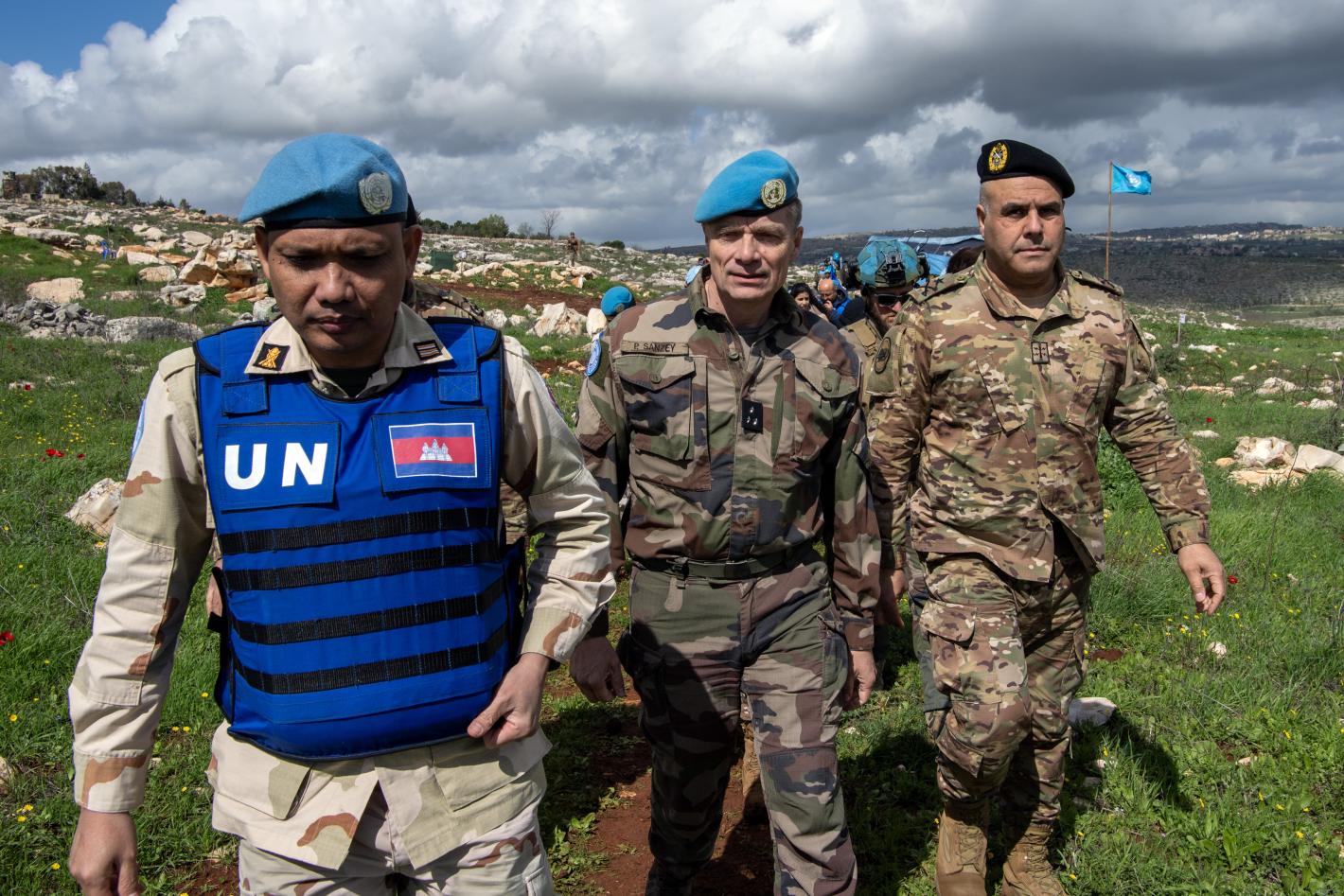Many of us have grown up folding paper, turning them into gliders and launching them in all directions for hours on end. In Japan, the art of folding of paper is called Origami, it is not only fun, but very useful too.
A series of Origami learning sessions was organised by UNIFIL's Civil Affairs office in cooperation with All-One, an association promoting Japanese culture in Lebanon. The first workshop was held in early November 2015 in Imam Sadr Foundation in Tyre. The children were between eight and thirteen years old children and some had learning difficulties.
Initially cultural activities manager at All-One, Seiko Hatakeyama, trained the basics of Origami to the teachers, and then they teach it to their students. "I just want to share my knowledge with the Lebanese people," she notes, adding that, "Nowadays, the children are often sitting using a computer, and it is good to use their hands instead."
Origami is derived from two Japanese words – "Ori" (folded) and "Kami" (paper). Folding paper is a type of art therapy as it strengthens the muscles of the hands, helping children develop fine motor skills, and can aid in rehabilitating those with hand injuries, arthritis and strokes.
The range in Origami is huge, some designs are as easy as three steps away, while others can require up to eighty-eight folds! In the past, the Samurai in Japan gave each other ceremonial gifts known as "noshi". This paper folded with a strip of dried fish was considered a good luck token.
"The main purpose of the workshop is to enhance the children's capabilities and creativity through folding papers in different shapes," UNIFIL's Civil Affairs officer Habib Aziz pointed out.
Late American mathematician and physicist Martin David Kruskal said "Origami helps in the study of mathematics and science in many ways.... Using origami anyone can become a scientific experimenter with no fuss."
Some therapists find origami helps those with low self-esteem, anxiety, Attention Deficit Hyperactivity Disorder (ADHD), autism, mental retardation, and other psychological conditions. People who have been diagnosed with depression have found that origami gives them hope, and paper-folding can also be useful for building social skills, reducing stress, learning to sequence and developing spatial orientation.
The room at Imam Sadr Foundation was filled with a happy buzz as the children worked to turn their papers into butterflies, cats, rabbits, and different other shapes. "What matters the most is that I can see the smile on their face," English teacher Dalia Ajami said.
An ancient Japanese legend says that if you fold one thousand cranes you will be granted a wish. Southern children should anticipate some fun origami workshops in different parts of UNIFIL's Area of Operations. After which, they too will have the skills to fold one thousand cranes and have a wish of their own come true.
----------------------------------------------------------------
Article: Rania Harb
Video Editor: Suzane Badereddine
Video Camera: Suzane Badereddine
Photo: Pascual Gorriz Marcos
----------------------------------------------------------------






